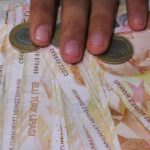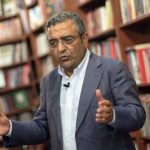By Ertugrul Gunay
On March 31, Turks will once again go to the polls, the seventh time in five years following local elections and presidential elections in 2014, two parliamentary elections in 2015, a constitutional referendum in 2017, and presidential and parliamentary elections in 2018.
Every election since the 2015 vote, in which the ruling Justice and Development Party (AKP) saw its share decline and the pro-Kurdish opposition Democratic People’s Party (HDP) score a marked success, has been presented by the government as a matter of life and death for the Turkish state. Each time the AKP has promised stability and security.
Such pledges helped the AKP restore its absolute majority in parliament at the Nov. 1 snap elections of 2015, but less than a year later, in July 2016, the country was shaken by an attempted coup. The government responded with a massive crackdown against all opposition and forged a new alliance with the far-right Nationalist Movement Party (MHP).
In April 2017, Turks voted in favour of constitutional changes that would give Turkish President Recep Tayyip Erdoğan extensive executive powers. The government promised the new system would ensure effective administration and bring stability.
But massive legal changes were required for the transition to the presidential system. Instead of passing those changes in the parliament, the government chose to go to the polls again for presidential and parliamentary elections on June 24 last year, almost one year ahead of schedule. During the campaign for constitution changes, the government told Turkish people the new system would bring stability and strong government.
Following June 24 elections, the new executive presidency came into force, with presidential decrees issued one after another, leading to massive changes in the way the public sector is run. All the powers that used to be shared by the prime minister and cabinet now come under a single man, the president. The president is also the head of the ruling party, the armed forces and a sovereign wealth fund that gives him control over large public companies with little oversight.
Turkey is now heading for local elections in the ninth month of this profound change.
Turks will elect not only mayors but also the members of municipal assemblies on March 31. Usually such elections are more colourful in Turkey and voters are more engaged as they revive local rivalries. But the election will have no effect on the system or the government, but members of the ruling party still attach critical importance to the results. They are trying to stress the country is battling for survival and the polls have a meaning beyond just electing local councils.
To drive home the point, the ruling party has also implemented an aggressive strategy towards the opposition, giving the impression that the country is not heading toward local elections, but entering some kind of war – a life or death situation. Painting Turkey as facing such an existential problem for political gain is grossly unfair and disrespectful, especially given the ongoing war just across the border in Syria for nearly eight years.
How can a political party that has been running the country for almost two decades say it is facing a life or death situation? If it is, who is responsible?
Turkey does not have a survival problem. But its domestic and foreign policies, economy, education and justice systems are in disarray. The issue is not the survival of the country, but ineffectiveness and injustice of one-man rule imposed from above.
Source: Ahval News



